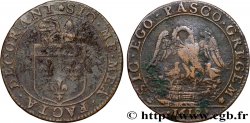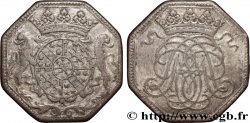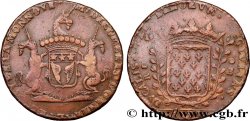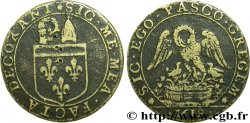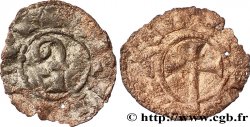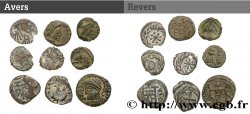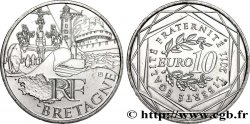fjt_080723 - AUVERGNE - NOBLESSE Louis d’Estaing, évêque de Rodez 1653
Nicht verfügbar.
Artikel auf unserem Online-Shop verkauft (2017)
Preis : 35.00 €
Artikel auf unserem Online-Shop verkauft (2017)
Preis : 35.00 €
Type : Louis d’Estaing, évêque de Rodez
Datum: 1653
Metall : Bronze
Durchmesser : 27 mm
Stempelstellung : 6 h.
Kommentare zum Erhaltungszustand:
Usure importante de circulation mais un exemplaire complet
N° im Nachschlagewerk :
Vorderseite
Titulatur der Vorderseite SIC* ME* MEA* FACTA* DECORANT*.
Beschreibung Vorderseite Écu aux armes de Louis d'Estaing, couronné et surmonté de ses attributs ; à l’exergue : 1653.
Übersetzung der Vorderseite (Ils honorent mes actes autant que moi).
Rückseite
Titulatur der Rückseite S. FRANCISVS. DESTAING. EPS. RVTHENENSIS.
Beschreibung Rückseite L’ancien évêque de Rodez, debout et de face, bénissant.
Übersetzung der Rückseite (Saint François d'Estaing, évêque de Rodez).
Kommentare
Louis d’Estaing est évêque de Clermont-Ferrand et porte d’azur à trois fleurs de lys d’or, au chef de même. François d’Estaing représenté au revers est né en 1460, à Prades d'Aubrac. Il fut élu évêque de Rodez en 1501 et consacra vingt-cinq ans à ce diocèse où il déploya une intense activité pastorale. Il fit partie du Grand conseil du roi et termina sa vie en odeur de sainteté.
Louis d'Estaing is Bishop of Clermont-Ferrand and wears azure with three golden fleurs-de-lis, with the same chief. François d'Estaing, represented on the reverse, was born in 1460 in Prades d'Aubrac. He was elected Bishop of Rodez in 1501 and devoted twenty-five years to this diocese, where he carried out intense pastoral activity. He was part of the King's Grand Council and ended his life in the odor of sanctity.
Louis d'Estaing is Bishop of Clermont-Ferrand and wears azure with three golden fleurs-de-lis, with the same chief. François d'Estaing, represented on the reverse, was born in 1460 in Prades d'Aubrac. He was elected Bishop of Rodez in 1501 and devoted twenty-five years to this diocese, where he carried out intense pastoral activity. He was part of the King's Grand Council and ended his life in the odor of sanctity.








 Berichten über einen Fehler
Berichten über einen Fehler Die Seite drucken
Die Seite drucken Teilen meiner Auswahl
Teilen meiner Auswahl Stellen Sie eine Frage
Stellen Sie eine Frage Einlieferung/Verkauf
Einlieferung/Verkauf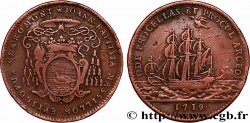
 Details
Details